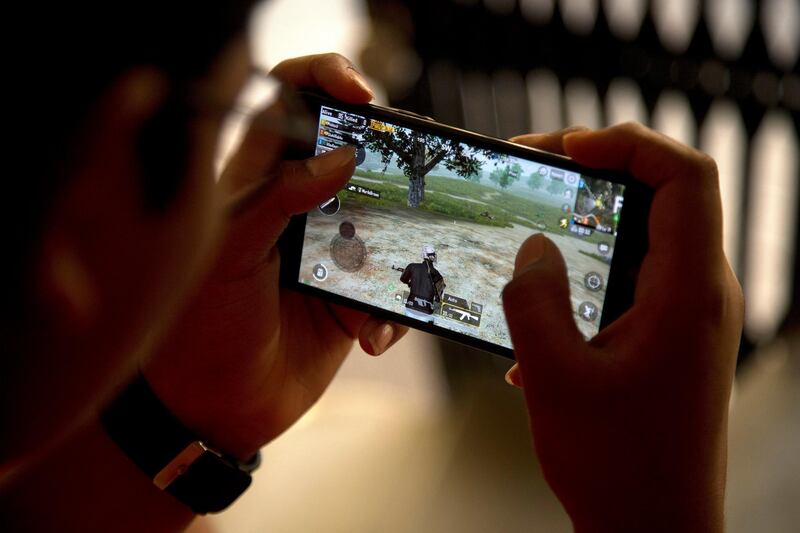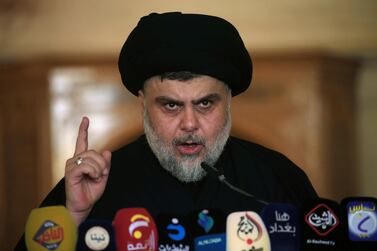Iraqis are outraged that parliament has taken rapid action to ban “violent” online games while real life issues including bloodshed, unemployment and corruption remain unaddressed.
Politicians in Baghdad unanimously voted on Wednesday to block PlayerUnknown’s Battlegrounds, short for PUBG, and its rival Fortnite among other games that “threaten social security, morals, civics and education" in Iraq society, parliament’s spokesman said.
Parliament asked Iraq's communications ministry and media commission to block access to the games, although a full ban will need approval by cabinet.
For months Iraqi media has reported incidents of suicide and divorce related to the games.
But the vote has been met with harsh criticism.
The oil-rich country suffered for decades under the dictatorial rule of Saddam Hussein and UN sanctions, the 2003 US-led invasion that unleashed a civil war, and the battle against ISIS, over which Baghdad declared victory in 2017.
Since 2003, politicians who have taken office have pledged to fight corruption, address electricity and water shortages, create private sector jobs and curb a system of political patronage that has prevented Iraq’s ability to serve its people.
But Iraqis say officials have failed to stick to their words.
"We are frustrated with everything, we live in such a rich country that has all kinds of resources, but we see that our wealth has been stolen from us," Hussain Ali, a 21-year-old living in Baghdad told The National.
“They have chosen to pass a law that bans video games, I don’t know whether to cry or laugh,” Mr Ali said, adding that this will not solve the problems citizens face on a daily basis.
“We will continue to play the game no matter what happens,” he said.
Iraq held an election in 2018 after three years of devastating fighting against ISIS across large areas of the country.
There are no words that can describe this embarrassment, Ali Al Baroodi, a lecturer at the University of Mosul said on Twitter. "Mosul is destroyed. Thousands are still reported missing. The future is still vague. Plenty of ISIS related issues are still waiting for solutions. Meanwhile, the Iraqi parliament is convened to ban PUBG.”
Another user questioned parliament’s intentions behind the vote.
“Does the parliament think that it has solved all of Iraq’s problems by banning video games such as PUBG?!” Amal Hussein said on Twitter.
The issue of containing and disarming Iranian-backed militias, also known as the Hashed Al Shaabi, has also raised alarm bells among the public.
“Don’t you think that militias who are operating outside the state should be banned and disarmed? Don’t you think that tribal battles should be banned?” Hala Al Mulla tweeted.
The militia fighters have been accused of promoting Iran's influence in Iraq and of carrying out waves of abuses against minority groups.
On banning video game:
— Rasha Al Aqeedi (@RashaAlAqeedi) April 17, 2019
(Iraq) expelled its Jews &confiscated their property, slaughtered its monarchs, invaded Kuwait, Dujail, Anfal, Halabja,sectarian killings, enslaved Yazidis, expelled Christians, militias..
..and we fear a video game will lead to violence https://t.co/2G7VTuDu1J
Washington regards the Hashed Al Shabi as among the biggest threats to security in the Middle East. They became an official unit of Iraq’s security forces after playing a vital role in fighting ISIS after 2014.
But their leaders have so far rejected calls of disarmament while many fear over that they are undermining Baghdad's central government.







